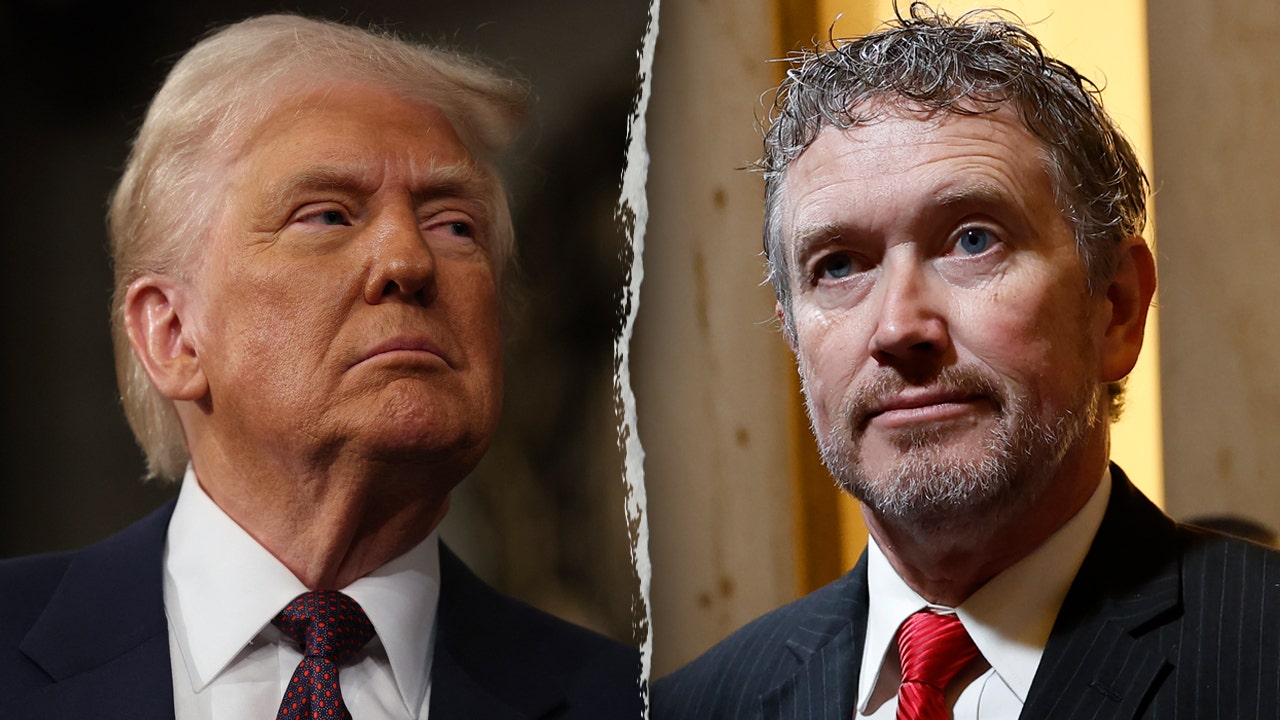Massie, Davidson take to social media to defend ‘big, beautiful’ no votes on budget

House Republicans successfully passed President Donald Trump’s “one big, beautiful bill” on Thursday morning after a grueling overnight session of committee meetings and last-minute negotiations. Despite the party’s message of unity, two Republican lawmakers, Reps. Thomas Massie of Kentucky and Warren Davidson of Ohio, stood firm in their opposition due to concerns about the nation’s staggering $36 trillion national debt crisis.
Massie and Davidson took to social media to explain their decision to vote against the bill, highlighting the unsustainable growth of deficits and the lack of immediate spending cuts. Massie emphasized the need for fiscal responsibility in the present rather than relying on future promises of belt-tightening. Both lawmakers expressed skepticism about the bill’s ability to address the country’s mounting debt burden.
White House Press Secretary Karoline Leavitt responded to the dissenting votes by suggesting that Massie and Davidson should face primary challenges. She defended the bill as a necessary measure to prevent tax hikes and economic collapse, urging party unity behind President Trump’s agenda.
In a bold statement on the House floor, Massie warned of the bill’s potential to exacerbate the debt crisis, labeling it a “debt bomb ticking.” Despite the pushback from within their own party, House Republicans ultimately rallied behind the bill, which encompasses a wide range of policy priorities including tax reform, immigration, energy, defense, and fiscal responsibility.
Former Rep. Bob Good, a vocal critic of the country’s debt trajectory, echoed the concerns raised by Massie and Davidson, cautioning that the bill could push the national debt beyond $60 trillion. Good, who lost his seat in a primary challenge, underscored the urgency of addressing the nation’s financial challenges.
The “One Big Beautiful Bill Act” represents a significant legislative achievement for President Trump, consolidating key elements of his policy agenda into a comprehensive package. While the bill includes provisions aimed at reducing government spending by $1.5 trillion, the United States continues to grapple with a mounting debt load and persistent budget shortfalls.
Despite the bill’s passage, questions remain about the long-term sustainability of the nation’s fiscal trajectory. As the government continues to spend more than it collects, concerns about the national debt persist. The debate over fiscal responsibility and the role of government spending will likely remain a central issue in the political landscape moving forward.
In conclusion, the passage of President Trump’s “big, beautiful bill” marks a significant milestone for House Republicans, but dissenting voices within the party underscore the ongoing challenges of addressing the nation’s fiscal health. As lawmakers grapple with competing priorities and ideological differences, the need for a comprehensive and sustainable approach to budgetary policy remains a pressing concern for the future.




